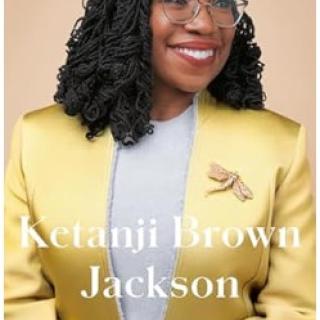Advertisement
"Asteroid City" is undeniably the most Wes Andersony movie to date, with his vivid colors, meta-narrative, and signature cast of quirky characters. This being his 11th feature film, Anderson also wrote the screenplay, with credit to frequent collaborator Roman Coppola. Don't let the bright colors fool you; this film delves into the existential crisis experienced by his characters, both within and beyond the play titled "Asteroid City."
The film opens with a black-and-white 4x3 ratio, hosted by Bryan Cranston, taking us behind the scenes of the play "Asteroid City." It serves as a TV special documenting the life of playwright Conrad Earp (Edward Norton) and his work on the play. We also see the director, Schubert Green (Adrien Brody), managing to keep the production afloat.
Cut to the highly saturated, mid-'50s Southwest America, where the play's narrative unfolds in the town of Asteroid City, where the town is hosting the Junior Stargazers convention for the young science brainiacs that draws the usual cast of Wes Anderson oddballs. During the convention, a UFO emerges above the Asteroid City crater. This alien encounter results in a military-imposed quarantine, in which the assorted families discover community and self-reflection amidst their unexpected week-long stay in the desert.
Jason Schwartzman plays the central character, Augie Steenback, a war photographer and recent widower –– he keeps his wife's ashes in a Tupperware box. As a father of four grappling with the loss of his wife and preparing for the impending visit of his father-in-law (Tom Hanks), Schwartzman's character lends the film its emotional weight.
Scarlett Johansson is also great as a Hollywood actress looking for her next performance. And Jeffrey Wright, a newer addition to Anderson's troupe, nails his comedic deadpan delivery in a supporting role as a military official. Steve Carell plays the owner of the town's usually desolate motel, now packed with visitors. His character sells a variety of items, even real estate, from a vintage vending machine.
"Asteroid City" finds the right blend of Wes Anderson, the Storyteller, and Wes Anderson, the auteur. At the center, the themes deal with grief and death, but Anderson encourages you to question how you face things beyond your control and respond to a world that is so much bigger than you and the mystery behind that. Though charmingly decorated with primary colors, symmetric framing, and quirky camera movements, it's what lies underneath that counts - a focus on existential angst.
While Anderson has a specific tone style, an ensemble cast, and recurring themes and quirks that he has no interest in departing from or reinventing, this does not imply that all his movies feel the same. At times, his intense involvement with his style, and his big ideas, can lead him slightly awry, resulting in his movies losing a bit of focus.
Featuring an impressive ensemble cast that includes Tom Hanks, Scarlett Johansson, and Steve Carrell, the movie doesn't disappoint in its offbeat humor, character dynamics, and emotional depth. The actors breathe life into their characters with rhythmic dialogue and unforgettable performances.
Honestly, I could watch a different Wes Anderson movie every year that's full of his eccentric characters. He consistently assembles an excellent ensemble who have all figured out how to speak in his deadpan style while creating compelling characters.
Now "Asteroid City" is not going to be for everybody. If you're not a fan of Wes Anderson, this will not be the movie that turns you around on him. One of the fascinating things about him is that he is a filmmaker; you know exactly what to expect, and also, you don't know at all what to expect.
The way the story plays across these two different narrative framing devices earns satisfying moments for both of these stories inside the other story. It's done clearly and concisely from a refreshing angle. Complemented by Alexandre Desplat's superb score and Robert Yeoman's cinematography, the movie is as visually stunning as it is dramatically stimulating.
"Asteroid City" beams with the feel of a 1950s postcard –– clean and picture-perfect bright colors. But, this film delves deeper than a mere artistic gimmick, blending Anderson's trademark witty humor and self-awareness with a thought-provoking exploration of life's profound questions. Its narrative, underpinned by emotionally resonant moments and coupled with an engagingly unique aesthetic, makes "Asteroid City" a shining example of Anderson's ability to transcend conventional storytelling norms while offering viewers a wildly inventive journey. In the end, I'm asking myself, what are we doing here? How are we supposed to do this? Is it worth it? How do we do it? Does anyone know what they're doing?
4/5



